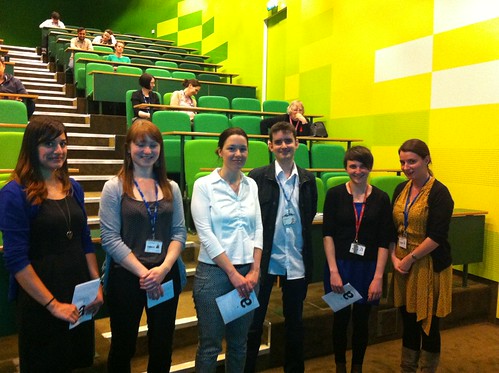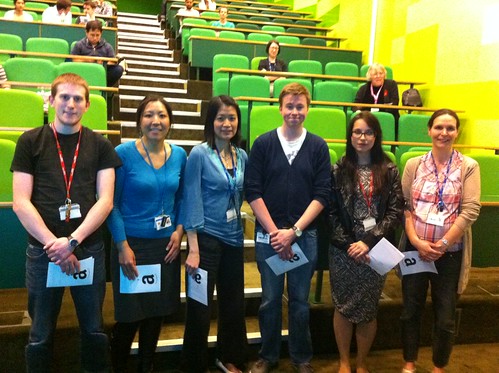Building on the success of the 2012 Imperial NIHR Biomedical Research Centre (BRC)/Imperial Innovations Therapeutic Primer Fund of £250,000, the College received £700,000 funding from the Medical Research Council (MRC) to establish an Imperial Confidence in Concept (ICiC) Scheme. Funding for projects was also sourced from the CLAHRC and College’s Wellcome Trust Institutional Strategic Support Fund to create a total fund in excess of one million pounds. This fund has been used to identify early targets, not currently being developed, within the Faculties of Medicine, Natural Sciences and Engineering, to enter into the drug, devices and diagnostics development pathway.
The ICiC fund combines the Imperial NIHR BRC/Imperial Innovations Therapeutic Primer Fund that promotes the discovery and development of therapeutics for areas of unmet medical need, and pump-primes the early stages of drug/therapeutic discovery with the MRC ‘Confidence in Concept’ scheme that helps to pump-prime the translation of novel therapeutics, devices and diagnostics, including repurposing of existing therapies toward clinical testing.
Additional funds were sourced from the CLAHRC and ISSF to support two extra projects. The Northwest London CLAHRC (NIHR Collaboration for Leadership in Applied Health Research and Care) is an alliance of academic and healthcare organisations working to develop and promote a more efficient, accelerated and sustainable uptake of clinically innovative and cost-effective research interventions into patient care. The Institutional Strategic Support Fund (ISSF) is a awarded to Imperial College from Wellcome Trust to support our researchers and to stimulate inter-disciplinary research. The ISSF supports a range of College-wide schemes that connect our excellent research capabilities in order to address the Wellcome Trust Research Challenges.
The ICiC scheme has been designed to provide pilot funding to bridge the potential gap between discovery research and well-developed applications for MRC Developmental Pathway Funding Scheme/ Developmental Clinical Studies Funding Scheme support.
The scheme was launched at a briefing event on the 28th February this year, with 70 expressions of Interest being submitted to the panel. Out of the seventy expressions of interest received, 27 were shortlisted and 19 were awarded funding at the final meeting in May 2013. The panel was chaired by Professor Roberto Solari, who was delighted with the high quality and wide range of applications.
The Principle Investigators who will receive awards of up to £70,000 are:
Dr Euan Stronach (Surgery & Cancer)
Dr Georgios Giamas (Surgery & Cancer)
Professor Charles Coombes (Surgery & Cancer)
Dr Michael Edwards (NHLI)
Professor Anita Simonds (NHLI)
Dr Gregory Quinlan (NHLI)
Dr Robert Snelgrove (NHLI)
Professor Michael Schneider (NHLI)
Dr Mohamed Shamji (NHLI)
Dr Uta Griesenbach (NHLI)
Dr Ramesh Wigneshweraraj (Dept. of Medicine)
Professor Mark Thursz (Dept. of Medicine)
Dr Nick Oliver (Dept. of Medicine)
Dr Prapa Kanagaratnam (Dept. of Medicine)
Professor Simon Taylor-Robinson (Dept. of Medicine)
Professor Shiranee Sriskandan (Dept. of Medicine)
Professor Nicholas Long (Chemistry, Faculty of Natural Sciences)
Dr Pau Herrero Vinas (Electrical & Electronic Engineering, Faculty of Engineering)
Professor Molly Stevens (Materials, Faculty of Engineering)
Hannah Dolby
Business Operations Trainee
Faculty of Medicine




